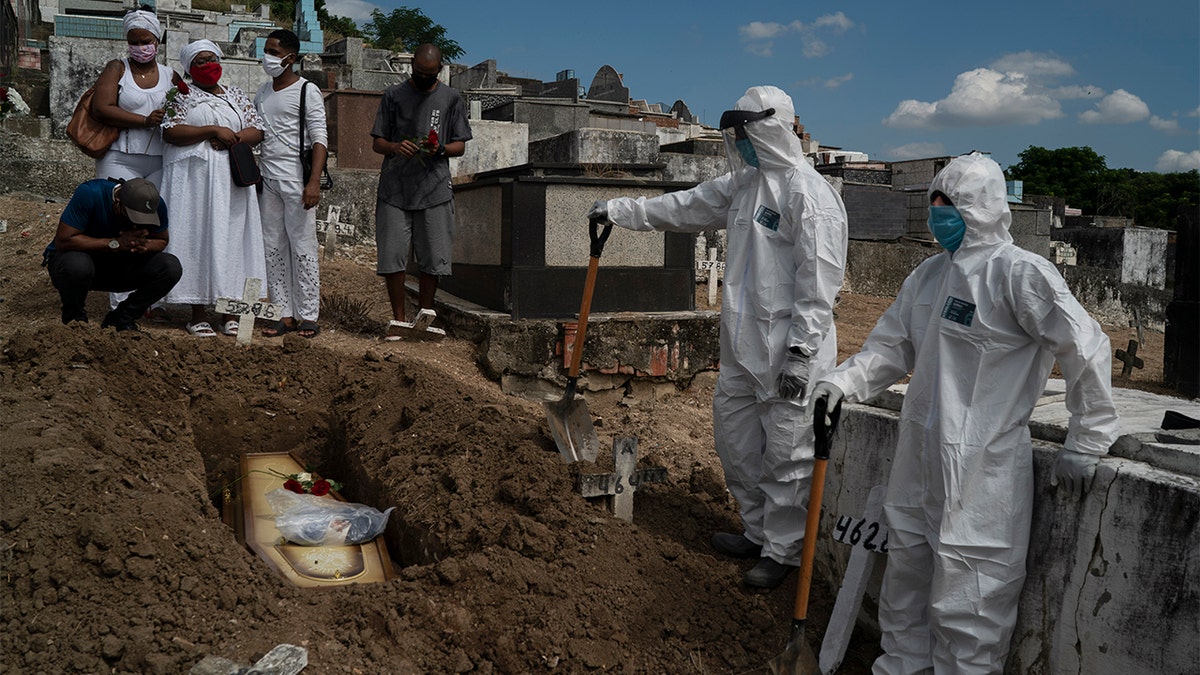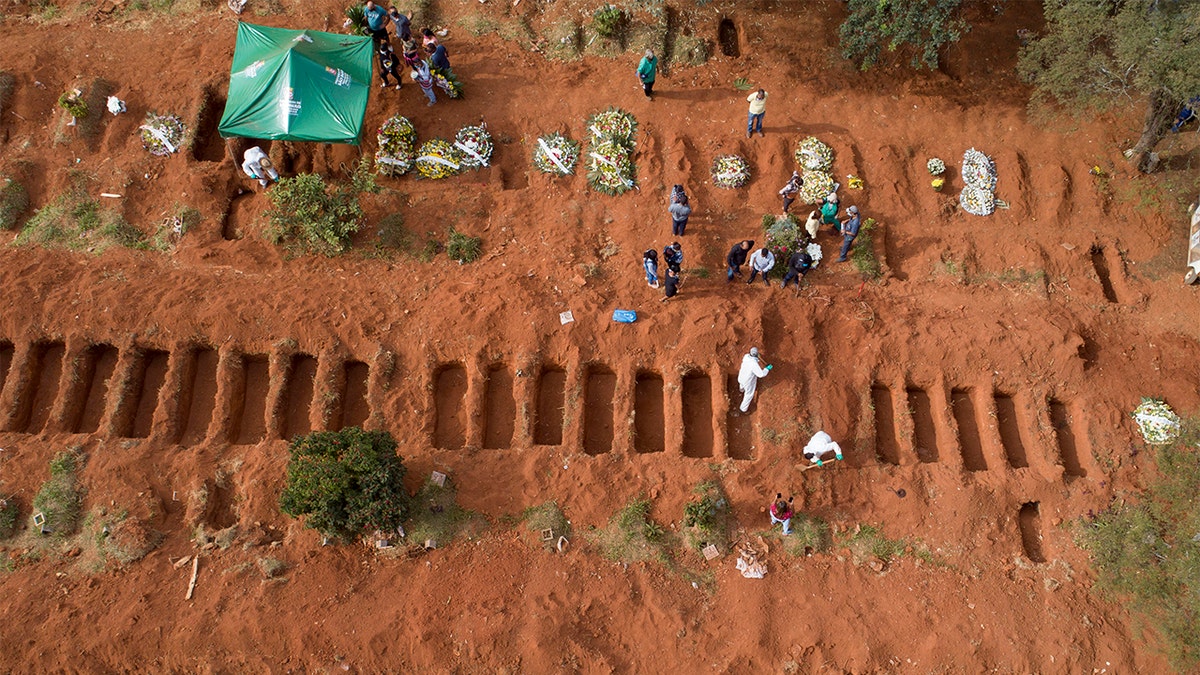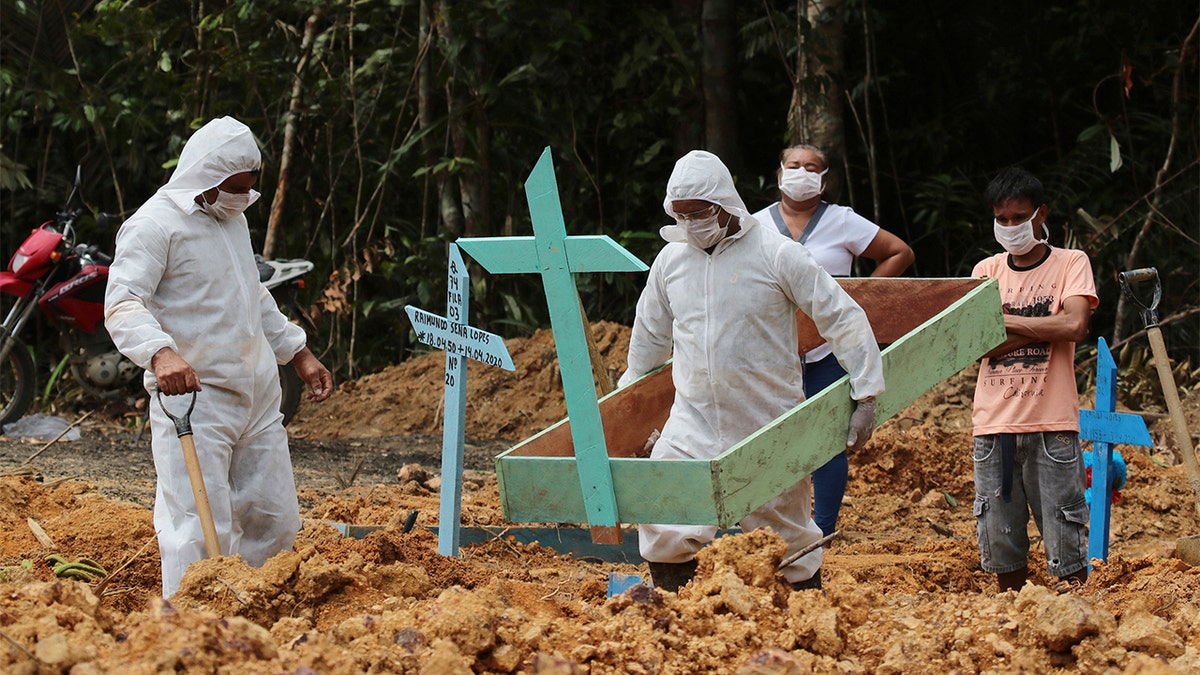Adam Carolla on coronavirus lockdowns: It's time to open things back up
Podcast host Adam Carolla, author of 'I'm Your Emotional Support Animal,' joins Tucker Carlson on 'Tucker Carlson Tonight.'
Get all the latest news on coronavirus and more delivered daily to your inbox. Sign up here.
Urged on by the view of President Jair Bolsonaro that a shutdown is wrongheaded, will wreck the economy and that, anyway, the coronavirus pandemic isn’t all it’s cracked up to be, the people of Brazil are starting to choose the freedom championed by conservatives rather than the safety defended by liberals globally.
Divina Baldomero awoke, looked out the window at Rio de Janeiro’s Copacabana Beach under a cloudless sky, and decided to take her first stroll in 40 days.
The 75-year-old restaurant owner, like most Brazilians, had been adhering to her governor’s call to stay home to contain the spread of the coronavirus. But on this day she decided to ignore that.
“At first I thought [the shutdown] was viable. Later, I came to think we will have more economic difficulties, with the poverty there is. There should be a different way so we can be free of this,” said Baldomero, speaking Wednesday in front of the shuttered Copacabana Palace hotel. Her legs, virtually unused for more than a month, began trembling after seven minutes of standing.

Taina dos Santos, third from left, attends the burial of her mother Ana Maria, a 56-year-old nursing assistant who died from the new coronavirus, in Rio de Janeiro, Brazil, Tuesday, April 28, 2020. Dos Santos said that the situation in the Salgado Filho public hospital where her mother worked is complicated and that some health workers have to buy their own protective gear. "She gave everything to her job until the very end," said the 27-year-old daughter. (AP Photo/Leo Correa)
CLICK HERE FOR FULL CORONAVIRUS COVERAGE
Bolsonaro’s hard-core base has staged rallies to shore up support for their leader’s views, most recently on Sunday in the capital, Brasilia. Many of the several hundred demonstrators draped themselves in the Brazilian flag, and the few face masks were in the national colors of green and yellow. Most neglected to use masks altogether, even as they shouted into a shared bullhorn.
Not all of Bolsonaro’s ministers have fallen into lock-step behind him, but those who don’t do so risk losing their jobs. Luiz Henrique Mandetta, his former health minister, strongly supported the restrictions imposed by state governors and his handling of the crisis was widely praised. But earlier this month, Bolsonaro fired him and appointed Nelson Teich, who has said he sees eye-to-eye with the president.
Egged on by Bolsonaro, who has routinely scoffed at both the virus and stay-at-home policies, Brazilians are heeding his call for revolt. Support for isolation is faltering, particularly among the wealthy, and more people are milling and mixing. From the sun-worshipers to the Instagram influencers and pro-Bolsonaro protesters, denial is spreading and quarantine is coming apart. But, unlike other countries looking to ease restrictions, Latin America’s largest nation is still weeks from the peak in its viral curve.
Bolsonaro first staked out his argument that the economy needs to get back to work in a national address at the end of March, when he referred to the coronavirus as “a little flu” and said his history as an athlete would protect him.

Cemetery workers in protective clothing bury a person who died of COVID-19, at the Vila Formosa cemetery in Sao Paulo, Brazil, Thursday, April 30, 2020. (AP Photo/Andre Penner)
Since then, he has doubled down time and again, saying only high-risk Brazilians need to be isolated, even as the official count of cases rockets past 85,000 and deaths surpass 5,900 — more than the amount suffered by China. Experts consider both figures to be significant under-counts due to a lack of widespread testing.
Asked about the grim milestone Bolsonaro responded, “So what? I’m sorry. What do you want me to do?”
Residents in Sao Paulo and elsewhere are defying social distancing, albeit discreetly. Local authorities said in multiple news conferences that some bars in poor areas are welcoming clients behind closed doors, and police have been called to end gatherings in isolated spots.
On Thursday, the governor of Rio de Janeiro state extended restrictions on activity and gatherings until May 11; Sao Paulo had previously extended them until May 10. The two states have the largest virus incidence.
Still, a poll by Datafolha showed 52 percent of people surveyed believe even those who don’t belong to at-risk groups – the elderly and people with chronic illness – should remain in isolation, down from 60 percent at the start of the month. Among the wealthiest, support for continued quarantine is just 39 percent.

In this April 16, 2020 photo, funeral workers in protective gear prepare the grave of a woman who is suspected to have died of COVID-19 disease, at the Nossa Senhora Aparecida cemetery, in Manaus, Amazonas state, Brazil. Gravediggers buried 60 people that day, about triple the pre-virus average, according to a cemetery official. (AP Photo/Edmar Barros)
CORONAVIRUS: WHAT YOU NEED TO KNOW
Lilia Santiago, a 51-year-old dentist, was ambling with her 77-year-old mother. She insisted forcing everyone to stay home amounts to “buffoonery,” particularly as poor people in Brazil often live in close quarters under the same roof.
“People at risk, with respiratory problems, autoimmune diseases, should take care, which doesn’t mean they can’t go out,” Santiago said. “We can’t be locked inside an apartment or house. We need to circulate, but safely.”
“You don’t stand next to someone with a cold. Same thing,″ she said, echoing Bolsonaro’s belittling of the virus’ dangers. “Flu kills more than coronavirus, folks! A lot of things kill more than coronavirus!”
The Associated Press contributed to this report.

